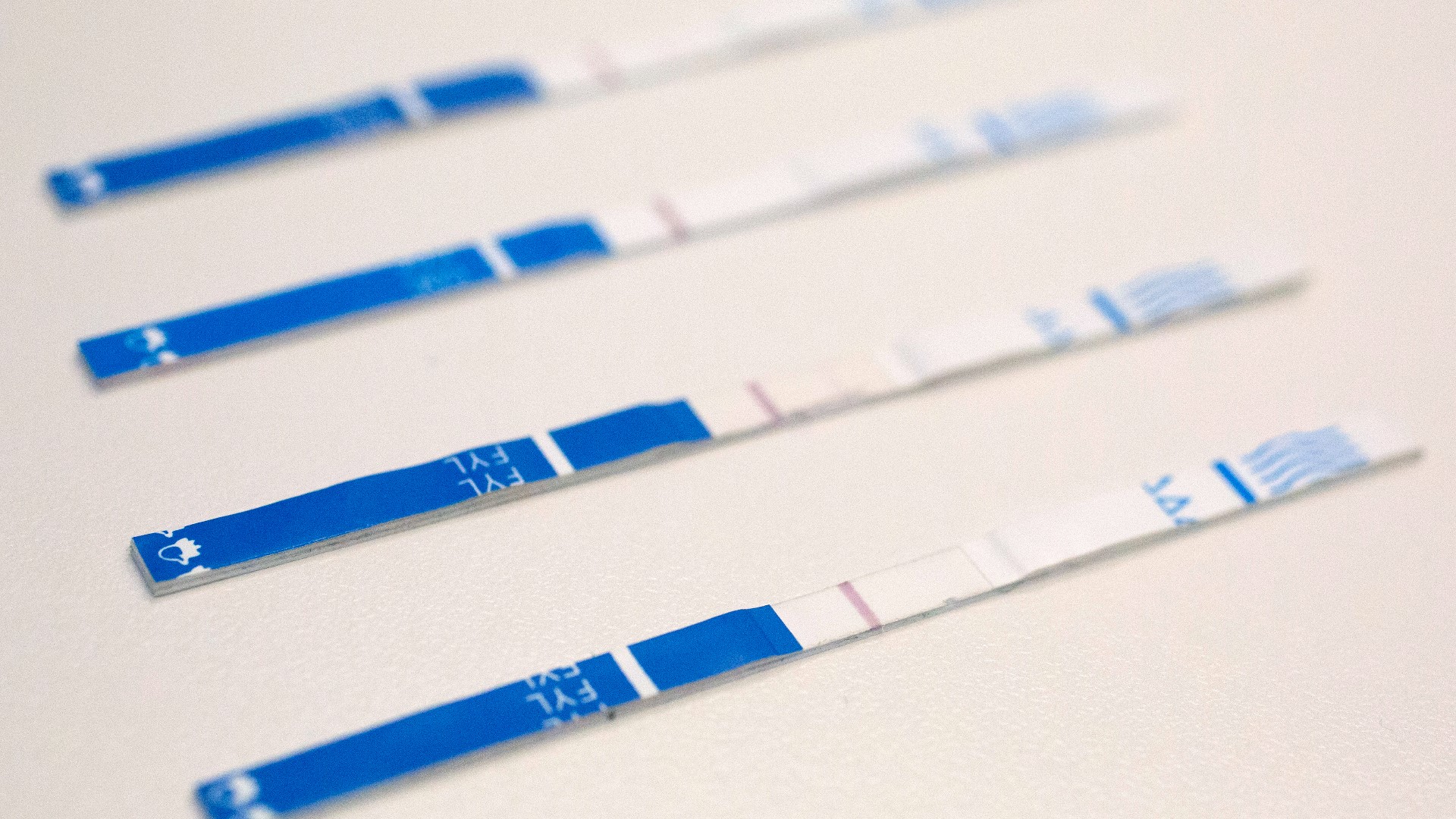HUNTSVILLE, Ala. — Madison County has seen a recent spike in suspected drug overdose deaths. To help combat this trend, Huntsville's Partnership for a Drug-Free Community will distribute fentanyl test strips, free of charge, while supplies last. No names or information are required to get the potentially life-saving tests. Alabama legalized this distribution and use of the fentanyl test strips in March.
Madison County Coroner Dr. Tyler Berryhill said six suspected drug overdose deaths were reported in just three days. While the exact cause of death in each instance is pending, Berryhill said fentanyl has been the cause of many of Madison County’s overdose deaths in recent months and over the past year. Drug overdose deaths across Alabama have been on the rise in recent years.
“While we were waiting on a possible statewide distribution program for these test strips to get funded, our Recovery Resource Hub wanted to do a trial run to determine the interest level and need,” Reeves said. “Just last week, one of our board members offered to pay for the test strips, so we placed the order. We don’t have an unlimited supply, but we want to give what we have to anyone who is an active substance user who does not want to accidently ingest fentanyl.” The fentanyl test strip program is one component of Partnership’s Recovery Resource Hub.
What are fentanyl test strips?
Fentanyl test strips can identify the presence of fentanyl in unregulated drugs. They can be used to test injectable drugs, powders, and pills.
A small amount of the substance is dissolved in water and then the test strip is dipped in. Results are available in about 5 minutes. The tests are highly sensitive and can detect even trace amounts of the drug. They won't tell the tester how much fentanyl is in the substance or how potent it is, just that it is there.
What is fentanyl?
According to dea.gov, fentanyl is a synthetic opioid that is 50-100 times stronger than morphine. Pharmaceutical fentanyl was developed for pain management treatment of cancer patients, applied in a patch on the skin. Because of its powerful opioid properties, Fentanyl is also diverted for abuse. Fentanyl is added to heroin to increase its potency, or be disguised as highly potent heroin. Many users believe that they are purchasing heroin and actually don’t know that they are purchasing fentanyl – which often results in overdose deaths. Illicitly manufactured fentanyl is now known to be present in all street drugs, including heroin, cocaine, methamphetamine and counterfeit prescription pills.
The CDC says that rates of overdose deaths involving synthetic opioids other than methadone, which includes fentanyl and fentanyl analogs, increased over 56% from 2019 to 2020. The number of overdose deaths involving synthetic opioids in 2020 was more than 18 times the number in 2013. More than 56,000 people died from overdoses involving synthetic opioids in 2020.

